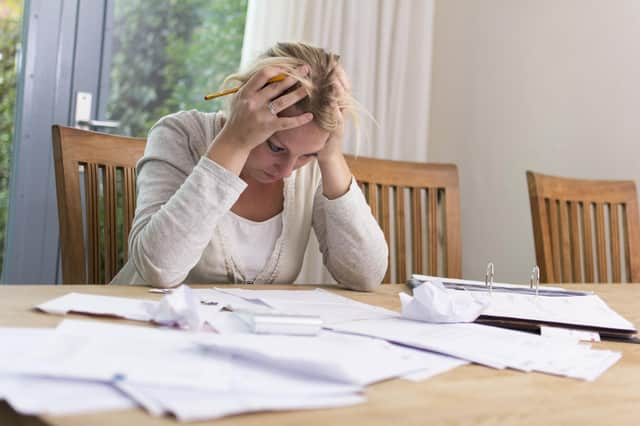Women in the workplace are vital for Scotland's post-Covid recovery – Gina Davidson


People who are disabled, who are of chronic poor health, who are carers, who are unemployed, who are of Asian ethnicity, who are female... all have been at the sharp end of the virus, either through contracting it or because of the economic impact of lockdown, and all because they are most likely to be living in poverty in modern Scotland, scraping by on benefits or being paid poverty wages.
Food-bank use has soared by 89 per cent, child poverty has increased, including those in families where parents work, and that is before the predicted unemployment tsunami hits the economy.
Advertisement
Hide AdAdvertisement
Hide AdTwo decades of devolution have done little to eradicate the most stubborn of Scotland's inequalities, not because of a lack of “levers” but because of a lack of concentrated effort on what the Parliament can actually achieve. We can only hope the approaching Holyrood elections will sharpen the minds of those who hope to guide Scotland out the other side of this pandemic.
It would be good to know, for instance, what those aiming to be the next Scottish government will do to make sure that women who have lost jobs as a result of having to juggle home-working with home-schooling, as well as other unpaid care, get back into the workplace?
According to a McKinsey report, women’s jobs are 1.8 times more vulnerable to the current crisis than men’s. Globally, while women make up 39 per cent of employment they account for 54 per cent of overall job losses – and the reason is inequality.
Women tend to work in jobs which are less secure at the best of times under the guise that they're more “flexible”. In Scotland the retail and tourism sectors are major employers of women, or they were until lockdown. A reliance on a vaccine and keeping fingers crossed for a staycation boost won't replace the jobs which have vanished.
The First Minister’s National Advisory Council on Women and Girls is already asking for women to share their experiences of working through lockdowns, and for answers to how to address the fact that so many women will be missing from the workplace when things return to normal.
Juggling children and work has never been easy for women but the lockdown has heightened the stresses and strains of working motherhood.
Pay cuts, furlough and redundancies have, of course, affected both women and men, mothers and fathers, but it is women who have borne most of the struggle to balance work and caring commitments within the pandemic restrictions. So much so that many have lost their jobs or been forced into quitting, while others struggle on with the resultant toll on their mental health.
The pandemic has set back women in the workplace. But it’s vital for both society and the economy that women are at the forefront of the recovery. Scotland's pool of working age people is shrinking as the population ages and shrinks. Brexit will have put paid to much immigration of those who want to work and contribute to the Scottish economy.
Advertisement
Hide AdAdvertisement
Hide AdThe country cannot afford to have women unemployed and economically inactive. The Holyrood manifestos of every party need to recognise that and provide answers.
A message from the Editor:
Thank you for reading this article. We're more reliant on your support than ever as the shift in consumer habits brought about by Coronavirus impacts our advertisers.
If you haven't already, please consider supporting our trusted, fact-checked journalism by taking out a digital subscription.
Comments
Want to join the conversation? Please or to comment on this article.
